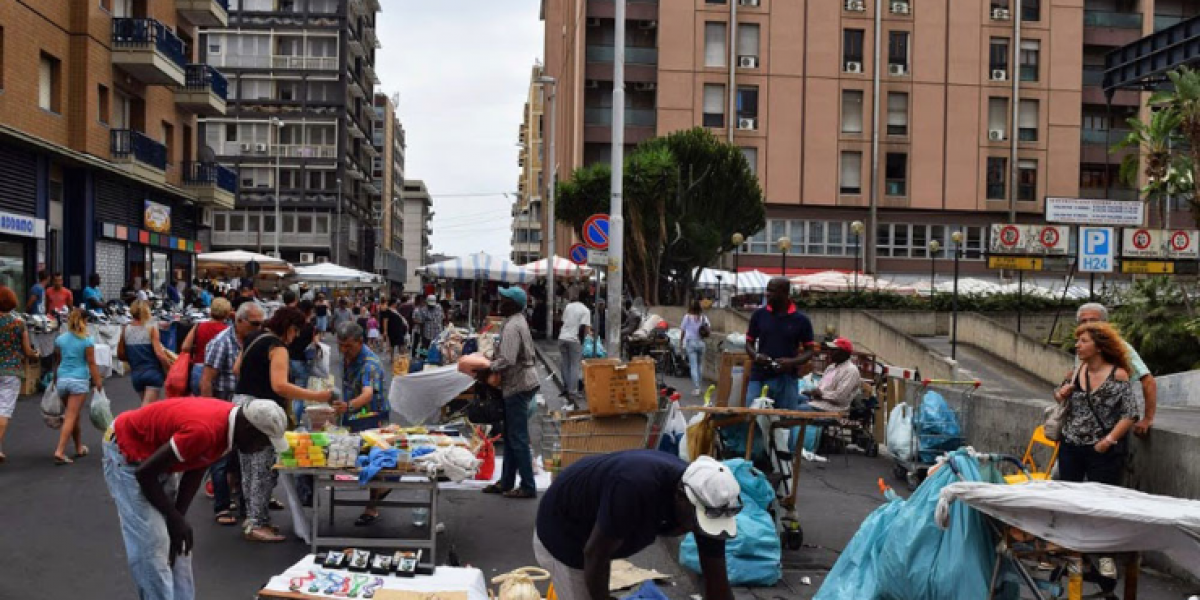
The single-most urgent need of the migrants we interviewed in southern Italy was to work – even the desire to get a document was closely linked to the possibility this opened up of finding a job afterwards. So much so some of those who were still waiting for a document harbored unrealistic expectations about getting work once they had one.
For our interviewees, work meant more than survival and occupying the time, it symbolized hope for the future, for their families, for the fruition of their dreams. But although the refugees might be more than willing to work, jobs are very hard to come by in Sicily. Italy’s economic crisis and Sicily’s burgeoning unemployment rate is difficult for anyone to find work. In such a scenario, the possibilities for exploitation are rife: no contracts, no security and low pay coupled with long hours and poor conditions of work, especially in the agriculture sector.
Thousands of immigrants in Sicily and other parts of southern Italy are exploited for seasonal agricultural labor in a criminal practice known as “caporalato”. Flourishing in areas where organized crime and the black market prevail, the caporalato is basically an illegal way for employers to recruit manpower, by engaging a caporale to find and bring daily laborers to the workplace. The laborers are made to work long hours in poor conditions and the caporale takes a massive cut from their wages, sometimes more than 50%. Not surprisingly it is usually “invisible people” like migrants who fall prey to this exploitation. As Fabrizio Gatti, a journalist who investigated the practice of caporalato, said, “People who don’t have any work accept to work in extreme conditions, even to the extent of earning 50 cents an hour. Often they are not even paid at the end of the week.”
Research has described the caporalato as a “flourishing business” with “indecent working conditions” in Catania’s agriculture industry. This is partly because many companies sub-contract their business with the risk that illegal networks will step in. In the city of Catania, at dawn, trucks stop at collection points between the train station and the harbor to pick up migrants to take them to pick agricultural produce like cherry tomatoes in nearby farms.
The caporale takes money out of their meager wages for the ride, for the bottle of water and panino (sandwich), for just about everything. The migrants say that at the end of the day, they end up with about five or six euro for their hard work. The regional anti-Mafia chief said this abuse leads to a war between the poor, between “foreigners condemned to endure humiliation and unspeakable exploitation and our agricultural laborers, who are forced to be inactive, expelled from the precarious agricultural labor market”.
Testimonies
“I did my best to find work but it just wasn’t possible… I registered here in Catania, I registered before at CARA di Mineo, [a reception center for asylum seekers], I wrote my curriculum vitae there and they promised to find work for us, but never did. I went to different places to ask for a job, but found nothing.”– Samir
“I have refugee status, I have been in Italy for more than seven years but still I have nothing. I don’t know about my future, what lies ahead, because I don’t know what to do. Wherever I look, front, back, sideways, everything is blocked. The situation in Italy is very tough. Since arriving when I was 16, I have lived in Sicily, Rome, and then Sicily again. I do odd jobs here and there, but life is difficult. What I earn now doesn’t even cover the rent. My family must send me money to pay the rent from Afghanistan. Is my family going to send me money for the rest of my life? I have a diploma as an Italian pastry cook, but I can’t find work. I go to the employment office and, before I have time to knock, they tell me there is nothing. It’s difficult to get a proper job because most employers refuse to give a contract, they can find as many workers as they like. They tell you to take or leave what they offer and can throw you out whenever they want.” – Jawad
“I have a document now so everything is in place, but still I don’t have any work. When Centro Astalli, [Jesuit Refugee Service Italy office], asked me if I wanted to do a care-worker course, I thought, why not? It may help me find work… it’s too difficult without. Sicily has good people, and Catania is a good place to live, but without work, what can I do? Sometimes I find daily work but I never managed to get a proper job. I searched for work in so many places, every day I go to the employment office but when they call to make inquiries, no one answers. This is the biggest problem I have now.” – Abraham
“I’ve heard that if I have a document, they will give me a place to stay so I am waiting for this. Then I’d like to go to a driving school; back home, my work was to drive a big lorry.” – Adam



